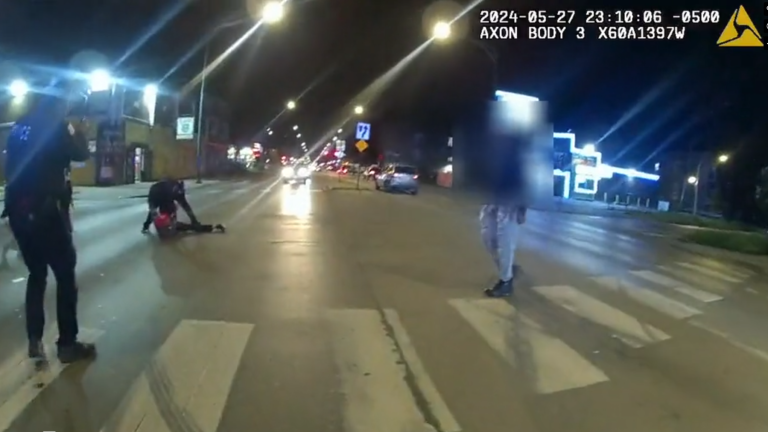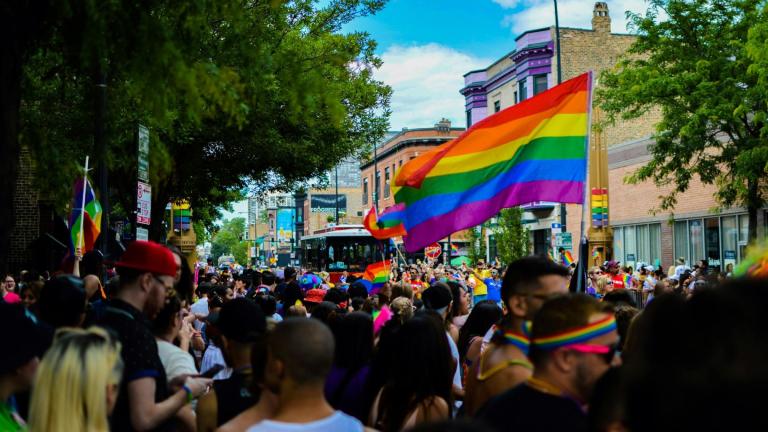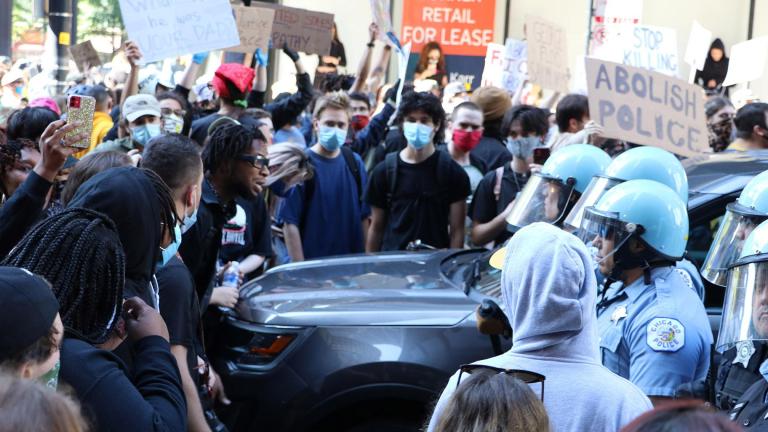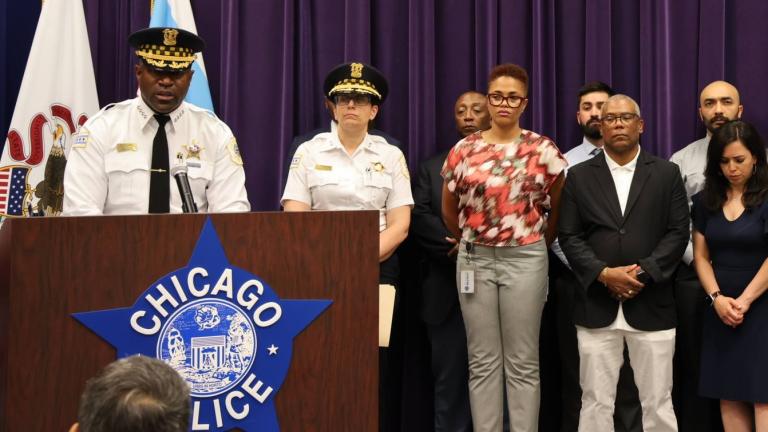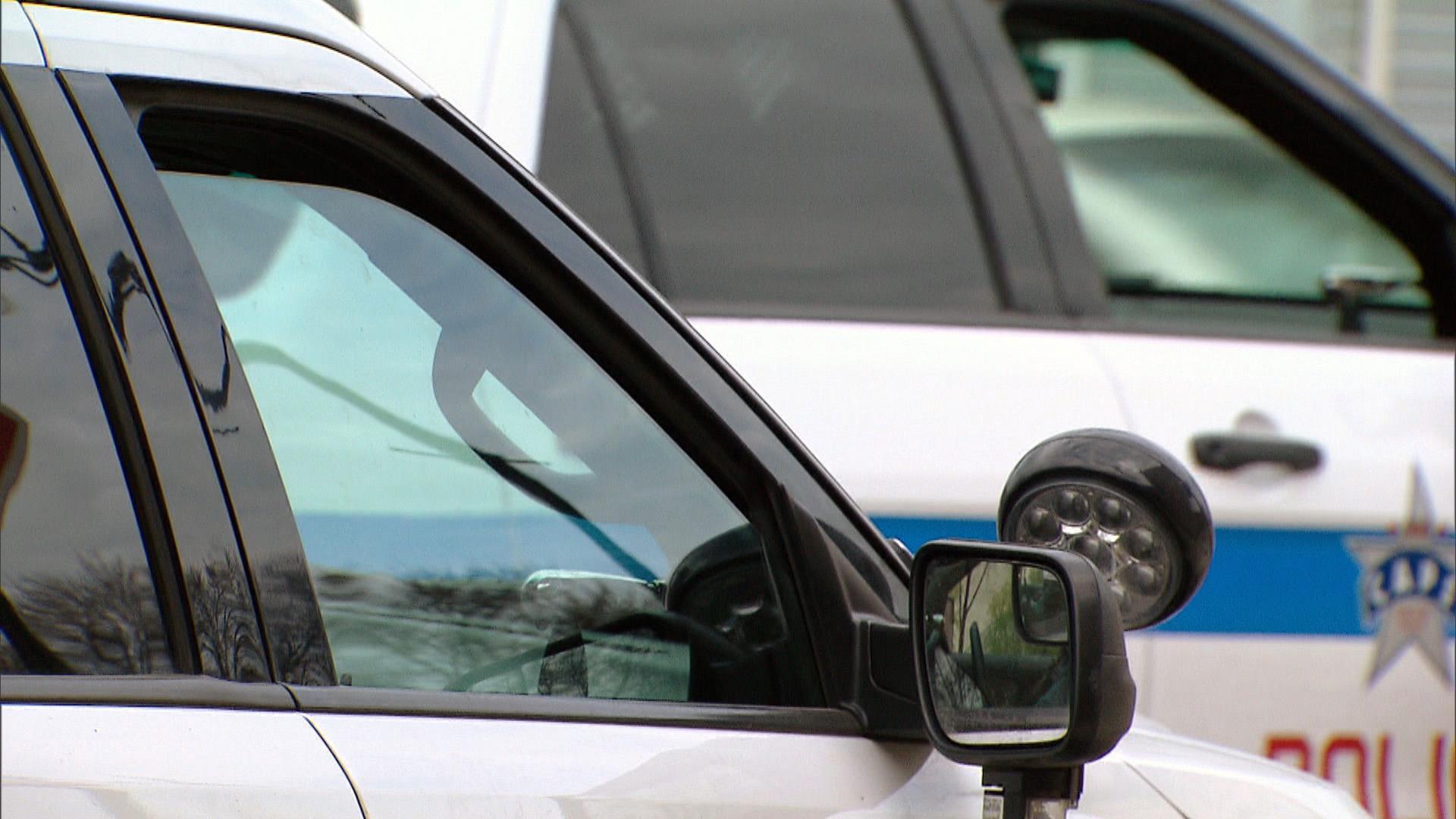 (WTTW News)
(WTTW News)
Three Chicagoans who accused the Chicago Police Department of targeting Black and Latino drivers with a massive campaign of traffic stops have been stopped repeatedly since they filed the lawsuit 12 months ago, court records show.
The lawsuit filed by the American Civil Liberties Union of Illinois accuses the Chicago Police Department of making more than 1.5 million traffic stops between 2016 and 2023 based on dubious evidence of minor violations that took direct aim at Black and Latino Chicagoans but spared White Chicagoans.
U.S. District Court Judge Mary M. Rowland ruled there is enough evidence that the city intentionally discriminated against Black and Latino drivers because of their race, and that the mass traffic stop program unlawfully burdens Black and Latino drivers disproportionately, for the lawsuit to proceed, court records show.
An amended complaint filed Tuesday by the ACLU included evidence that three of the five named plaintiffs in the class-action lawsuit have been stopped a combined seven times in 12 months, according to court records. Two of the plaintiffs were each stopped three times between July 1, 2023, and July 2, 2024, according to the lawsuit.
Alexandra Block, director of the Criminal Legal System and Policing Project at the ACLU of Illinois who represents the Black and Latino Chicagoans who sued the city, called CPD’s conduct “egregious.”
“It confirms everything we said in our lawsuit,” Block said. “This is classic racial profiling, and it hasn’t stopped.”
A spokesperson for the Chicago Police Department declined to comment on the amended lawsuit but said all of its “policies and procedures are rooted in constitutional policing.”
Chicago Police Supt. Larry Snelling has vowed to focus the department’s traffic enforcement strategy to narrow in on dangerous drivers and those suspected of committing crimes like robberies, shootings or carjackings.
CPD has made approximately 106,500 fewer traffic stops so far in 2024, as compared with the year before, while officers have made 620 more felony arrests after traffic stops than they did during the same period last year, officials said. That data could not be independently verified by WTTW News.
In 2023, CPD reported making 535,088 stops, a 4.6% increase from 2022, according to a report released Tuesday by the Illinois Department of Transportation.
Between 2021 and 2022, the number of traffic stops increased 35%, according to the report. In 2015, CPD made just 85,000 traffic stops, according to IDOT data.
That report, required by state law, confirms the findings of an April report from Impact for Equity, a nonprofit advocacy and research organization that has helped lead the push to reform the Chicago Police Department.
Black drivers were the subject of 51% all of traffic stops in Chicago, while Latino drivers were the subject of another 31%, according to the data. By comparison, just 13.6% of drivers stopped by Chicago police were White, according to the report.
The population of Chicago is 31.4% White, 29.9% Latino, 28.7% Black and 6.9% Asian, according to the 2020 U.S. census.
There is no evidence that traffic stops are an effective crime-fighting tool, according to the IDOT report.
Approximately 73% of the traffic stops made by Chicago police officers in 2023 were prompted by improper license registration or a broken headlight, taillight or license plate light. Just 27.4% of all stops were prompted by a moving violation, including speeding and failure to stop at stop signs, according to the report.
Just 2.2% of those stops led to an arrest, and a gun was recovered in just 0.5% of stops, according to the report. Approximately 4.4% of stops led to a citation, according to the report.
U.S. District Court Judge Rebecca Pallmeyer, who is responsible for enforcing a federal court order requiring the Chicago Police Department to change the way it trains, supervises and disciplines officers, is weighing whether to expand the order to include traffic stops.
The expansion of the order, known as the consent decree, has the support of the independent monitoring team charged with keeping tabs of the city’s efforts to comply with its requirements as well as Snelling and the department’s leaders.
The move to give Pallmeyer authority over the department’s use of traffic stops comes amid widespread outrage over CPD’s use of traffic stops triggered by the decision by four Chicago Police officers to fire 96 bullets in 41 seconds during a West Side traffic stop on March 21, killing 26-year-old Dexter Reed.
However, the lawyers representing the Chicagoans who have sued CPD over its use of traffic stops have objected to the effort to expand the scope of the 5-year-old consent decree, concerned it could bring their suit to a screeching halt.
CPD’s use of traffic stops should be allowed to “participate in proceedings to determine whether the consent decree should be modified so they are not crowded out of any discussions about ways to end CPD’s mass traffic stop program,” according to a request filed by Block.
The city is in full compliance with approximately 7% of the consent decree after making “incremental progress” between July 1 and Dec. 31, according to the latest report from the monitoring team.
“CPD has moved at a snail’s pace in making change under the Consent Decree — something which already frustrates members of the community across Chicago,” Block said. “It is simply unacceptable to allow their recalcitrance to be extended to traffic stops and to eliminate the voices of our clients in this process.”
Eight progressive alderpeople have also objected to the consent decree’s expansion to allow the city’s new police oversight board, the Community Commission for Public Safety and Accountability, to develop a new policy governing traffic stops.
The commission has no authority over areas covered by the consent decree.
Pallmeyer will not decide whether to expand the consent decree until after she reviews arguments on the issue, which are due before the end of the month.
If Pallmeyer agrees to expand the consent decree’s scope to include traffic stops, it will be the third time the 5-year-old court order has grown in response to a scandal caused by the actions of Chicago police officers.
After the monitoring team found CPD officers committed far-reaching misconduct during the protests and unrest triggered by the police murder of George Floyd on May 25, 2020, the consent decree added 17 requirements, ranging from new rules governing efforts to prepare for large protests and civil unrest to requirements that officers’ body-worn cameras be reviewed after incidents.
In March 2022, the consent decree again expanded to include CPD’s use of search warrants. CPD’s use of search warrants had been in the spotlight since December 2020, when CBS2-TV aired video of officers raiding the home of Anjanette Young, a social worker who was handcuffed while naked during a botched raid in February 2019.

